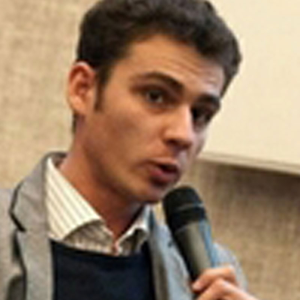
finished
History of Popular Culture in Polandin the first half of the 20th century from the perspective of transmediality

principal investigator / project leader
Ph.D. / Associate Professor
cultural researcher specializing in the relationship between new media and cultural participation
Full bio project value: PLN 498,938
funding source: National Science Center
discipline: cultural and religious studies
location: Warsaw
duration: 2013 2014 2015 2016 2017
Papyrus scrolls, movable print, color printing, and electronic readers. A phonograph, a gramophone, a tape recorder, a CD player, and an iPod. The ways of recording written texts and music have been changing throughout the ages. Focusing on the first half of the 20th century, researchers from SWPS University examined how the technology available at the time influenced various platforms and formats of popular culture.
RESEARCH PROJECT
History of Popular Culture in Poland
in the first half of the 20th century from the perspective of transmediality
Research Unit

Grant Amount PLN 498 938
Funding Source

Duration of Research Project: July 2013 – July 2017
Papyrus scrolls, movable print, color printing, and electronic readers. A phonograph, a gramophone, a tape recorder, a CD player, and an iPod. The ways of recording written texts and music have been changing throughout the ages. Focusing on the first half of the 20th century, researchers from SWPS University examined how the technology available at the time influenced various platforms and formats of popular culture.
Project Objectives
The main goal of the project was to approach popular culture from a transmedial perspective in the context of modern civilizational transformations. The researchers examined how the technology available in a given historical period had influenced various platforms and formats of popular culture. This approach allowed to examine popular culture as a set of linked phenomena grounded in a social context. The researchers focused on capturing the local dialectic of modernism and modernization. They also examined how a specific local civilizational environment had influenced the symbolic expressions of experiencing modernity and the related cultural practices. In the course of the project, the researchers focused on literature, performing arts, cinema, and other audio-visual media.
Detailed Research Goals
- Examination of the distribution and perception of West European thriller genre in literature.
- Study of the entertainment industry of the early 20th century on the example of the professional publication “Organ”.
- Examination of the relation between the Polish film vanguard and the rest of the with the film industry, understood as entertainment industry.
- Analysis of the Polish popular theatre (e.g. vaudeville) and community theatre of blue collar workers in the period 1918-1939 as activities aimed at including wider social groups in the theatre culture.
- Examination of the social context, in which the “new” technologies, such as the sound film, gramophone, and radio functioned in the first half of the 20th century.
- Reconstruction of the tradition of the Polish pop culture historiography - description of the Polish post-war informal “school” of the pop/mass culture research
There is an ongoing revision of the popular narratives in the field of global media history. Our project is a part of this movement, including not only new archival research, but also theoretical re-visitation. Within the project, we use new theoretical tools for the reinterpretation of the facts discovered by the previous generations of researchers.

Filiciak, Mirosław
Principal Investigator
Specialization
cultural researcher specializing in the relationship between new media and cultural participation
First and last name
Mirosław Filiciak
Academic degree or title
Ph.D. / Associate Professor
Email
This email address is being protected from spambots. You need JavaScript enabled to view it.
Position
profesor uczelni
Role in the Faculty
{"funkcja-na-wydziale0":{"Funkcja":"","\u0141\u0105cznik":"","Nazwa w mianowniku":"Faculty of Humanities in Warsaw"}}
Role in the Department
{"funkcja-w-katedrze0":{"Funkcja":"Head","\u0141\u0105cznik":"of the","Nazwa w mianowniku":"Department of Cultural Studies"}}
Role in the Institute
{"funkcja-w-instytucie0":{"Funkcja":"Director","\u0141\u0105cznik":"of the","Nazwa w mianowniku":"Institute of Humanities"}}
Role in the Research Center
{"funkcja-w-centrum0":{"Funkcja":"Head","\u0141\u0105cznik":"of the","Nazwa w mianowniku":"Center for Cultural Research of Technologies"}}
Discipline
culture-and-religion-studies
Ph.D. / Associate Professor Mirosław Filiciakcultural researcher specializing in the relationship between new media and cultural participation
Research Results
During the project, the researchers completed the following research goals:
- Complied a description of pop culture from the transmedial perspective in the context of civilizational transformations related to modernity, which allowed to examine popular culture as a set of linked phenomena grounded in a social context.
- Prepared a comparative analysis of the history of modern pop culture in Poland up to 1939 and the “world history” of pop culture, which enabled a better understanding of the local variant of modernization and cultural education.
- Conducted archival research to study source materials pertaining to the development of pulp fiction, popular theatre, and film culture as well as completed a scientific analysis of mass/pop culture.
- Edited source materials.
Educational Activities
The project has also been a good opportunity for popularization of the history of Polish popular culture. Some activities included:
- Promotion of modern Polish popular culture of the period before 1939, among researchers from around the world, by means of a seminar organized during an international conference, the participation of the research team in the international conference and publication of academic articles in English.
- Creation of open digital archives of the history of pop culture in Poland as well as the development of various research tools.
- Development of an online network of researchers, representing various disciplines, interested in the history of popular culture.
Research Team

Biskupski, Łukasz
Specialization
culture and film researcher
First and last name
Łukasz Biskupski
Academic degree or title
M.A.
M.A. Łukasz Biskupskiculture and film researcher

Michał Pabiś-Orzeszyna
media and audio-visual culture researchers, University of Lodz

Piotr Morawski
cultural historian researching cultural history of theatre and performence arts, University of Warsaw

Piotr Olkusz
theatre critic and cultural historian researching French theatre, University of Lodz

Monika Wąsik
cultural researcher specializing in the history of theatre and playwriting, University of Lodz

Justyna Jaworska
cultural researcher specializing the history of the Polish 1970s cinema, University of Warsaw

Monika Rawska
graduate of cultural studies and currently pursuing a doctorate at the University of Lodz